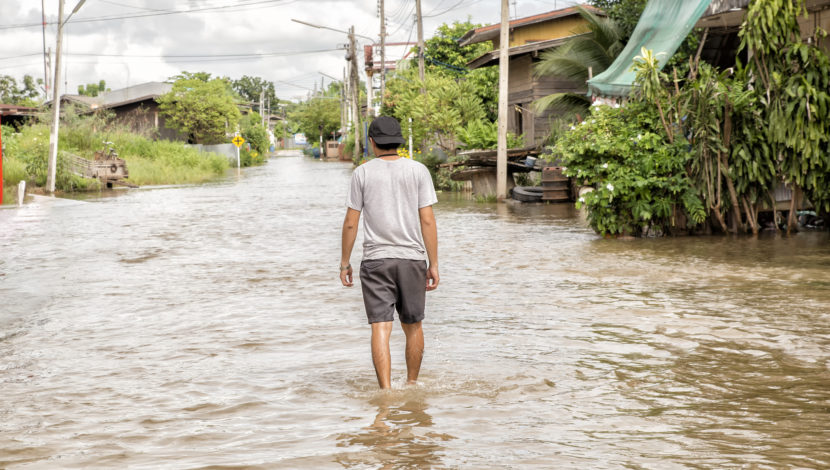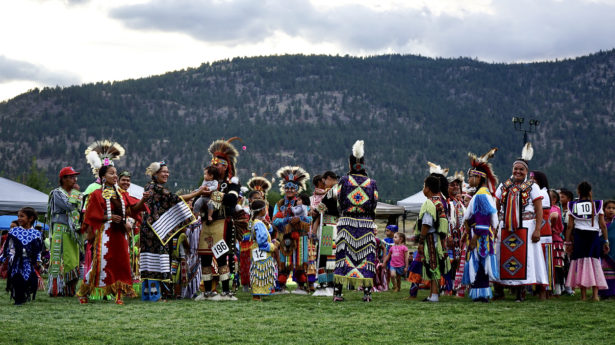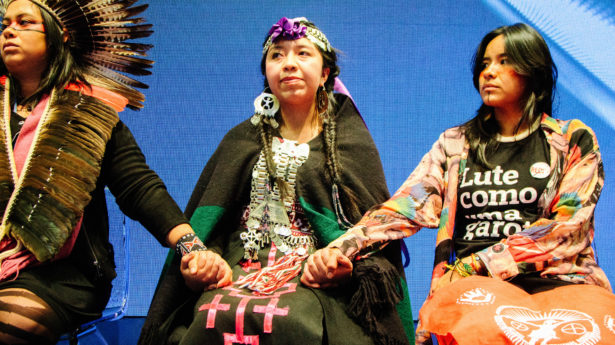The Unitarian Universalist Service Committee advances human rights through grassroots collaborations.
What We Mean by “Climate Injustice”

By on October 25, 2021
Everyone knows that climate change is bad, right? But what do we mean when we say that it’s also unjust?
We mean that climate change didn’t just happen one day, coming down from the sky; nor is it a neutral and universal problem affecting everyone evenly across the globe…
To the contrary, different countries, industries, and businesses have different levels of responsibility for causing the climate crisis. So too, not everyone has to pay the costs of the climate crisis equally.
Some communities are disproportionately harmed by the climate crisis, even when they may have done the least to contribute to it in the first place. All too often, the communities forced to bear the highest costs for global climate change are also those who have already been the most deprived of resources, through historic and ongoing oppression.
In this way, white supremacy, racism, settler colonialism, and other forms of oppression and inequality all combine to make the climate crisis even more unfair.
When the responsibility for causing the problem, and the costs of paying for its effects, fail to line up in such a dramatic fashion, that’s an injustice.
So what are some of the ways we see this climate injustice show up?
1. Pacific island nations have done the least to contribute to the climate crisis, but they are facing some of its earliest and worst effects
Small-island developing states, including many of the countries in the Pacific where UUSC’s partners live, expel very little planet-warming carbon into the atmosphere every year.
Indeed, according to the United Nations, they contribute on average only 1.5% the amount of greenhouse gas emissions each year as industrial countries.
The contribution these Global South countries—many of which endured dispossession and exploitation under colonialism that has left them impoverished and under-resourced—have made to the climate crisis is minimal; yet they are facing some of its worst effects, including sea level rise and soil erosion that threaten to disrupt their way of life and render their current homes uninhabitable.
This is unfair.
2. The United States, while contributing the most of any nation to the climate crisis, has barely scratched the surface of paying for its costs
Historically, the United States has burned more fossil fuels than any other country on Earth, and remains far and away the largest per capita carbon-emitter today.
As the wealthiest country on Earth, the United States also has the most resources to tackle the climate crisis, by contributing funds to help the world mitigate, adapt to, and compensate other countries for the irretrievable losses and damages of climate change. Since so much of the U.S.’s wealth was generated through industries that emit carbon and are fueling the global climate crisis, it is only fair that the United States contribute its share to addressing the impacts of that disaster.
Since the U.S. has both the responsibility and the capacity to cover these costs, advocates (including UUSC and our partners) estimate the United States should contribute at least $800 billion through 2030 to global climate finance as its fair share of global climate costs.
So how much progress has the U.S. made toward this goal? The Biden administration recently estimated that, during the Obama administration, the U.S. averaged $2.8 billion per year in international climate finance. That’s only about 1.4% of the U.S.’s total fair share estimate, and that’s spread out over the whole four-year period.
At this rate, it will take the United States almost 286 years to cover its entire fair share of climate costs! Longer than we’ve existed as an independent nation.
And that’s assuming that the U.S. government continues to fund these commitments each year, which is seeming less likely as conservative members of Congress from both major parties recently moved to strip climate provisions from national legislation.
3. And people inside the United States also experience climate injustice: particularly Black, Indigenous, People of Color and low-wealth communities.
Just as wealthy corporate actors and countries who have contributed the most to carbon emissions often displace the costs of environmental harm onto poorer countries abroad, so too low-wealth and historically oppressed communities in the United States bear the brunt of carbon pollution.
Many Native nations in the United States face threats to their livelihoods and sovereign treaty rights from fossil fuel projects being built on their land without their consent.
Many Indigenous people in the U.S. were historically subjected to displacement and forced relocation due to violence, genocide, and forced “assimilation” policies engineered by the U.S. government. As climate change renders many of their homelands uninhabitable, through contributing to erosion, shoreline loss, permafrost melt, and more frequent and severe natural hazards, this history is repeating itself.
For these reasons and others, when UUSC talks about climate change, we don’t just see it as a challenge—we see it as an injustice.
People around the world are facing worse outcomes and life prospects due to a problem they did almost nothing to cause. That’s not fair.
But what can we do about it?
We can demand that our elected officials do their part to ensure a more just long-term outcome. Indigenous leaders and other members of directly affected communities, convened by UUSC, have already made their recommendations clear.
The U.S. government can and should ensure a just future for Indigenous communities facing forced displacement due to climate change in the United States, as well as a human rights-based response to the climate crisis globally.
***
About UUSC: Guided by the belief that all people have inherent worth and dignity, UUSC advances human rights globally by partnering with affected communities who are confronting injustice, mobilizing to challenge oppressive systems, and inspiring and sustaining spiritually grounded activism for justice. We invite you to join us in this journey toward realizing a better future!
Image Credit: iStock – SAKDAWUT14

